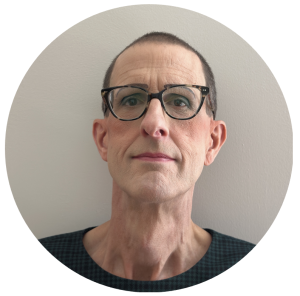Current Lab Members
Current Lab Members
Director

James Booth
James R. Booth is the Patricia and Rodes Hart Professor in the Department of Psychology and Human Development at Vanderbilt University. The overall goals of his research are to understand the brain mechanisms of the development of reading, math and scientific reasoning in typical and atypical populations. Prof. Booth has been continuously funded for close to two decades and has published extensively in diverse journals. He has served in various roles both within and outside of the university, such as departmental chairperson, review panel member and associate editor. Prof Booth aims to facilitate the interaction between the fields of cognition, neuroscience and education.
Post-doctoral Research Associates

Avantika Mathur
Avantika Mathur is a senior research analyst interested in understanding the brain mechanisms that underlie the process of human reading, language and music perception ability. She completed her PhD at the National Brain Research Centre, India, where she investigated the emotions experienced during North Indian classical music listening using behavior and neuroimaging methods. Thereafter, she joined University of Nebraska, Lincoln as a postdoctoral research fellow, where she used advanced multivariate analysis on functional MRI data to understand the neural mechanisms of reading processes – phonological and semantic processing, in 5–7-year-old children. Thereafter, she joined the Center for Neurobehavioral Research in children at the Boys town National Research, Omaha, Nebraska, where she analyzed neuroimaging datasets using univariate and multivariate analysis methods to understand the dysfunction of neurocognitive systems in children with aggression and antisocial behavior. As a new member of Brain Development Lab, she will be studying the brain mechanisms underlying developmental language disorder. She plans to use advanced skills in neuroimaging data analysis (univariate and multivariate analysis, graph theory and connectomics), to better understand the brain basis of delayed language during preschool as compared to typical children.

Marjolein Mues
After completing her Master’s in Neurolinguistics at the University of Groningen, Marjolein Mues pursued her PhD at Ghent University in Belgium. During her PhD she studied neural and behavioral factors underlying language heterogeneity in autistic preschoolers. She is especially interested in combining neuroimaging research methods such as fMRI and DTI with behavioral methods to learn more about different pathways that shape language and literacy development, especially in atypical development. As a postdoc at the Brain Development Lab she will focus on the neurocognitive development of children with delayed spoken language.
Doctoral Students

Alisha Compton
Alisha Compton is a doctoral student in the Brain Development Lab studying educational neuroscience. Her research focuses on investigating the brain and behavior mechanisms underlying reading skill and anxiety symptoms. She was previously a teacher and received her MS in Education from Johns Hopkins University.

Johanna Hearn
Johanna Hearn is a PhD student in Hearing and Speech Sciences. She earned her Masters degree in Speech-Language Pathology at Vanderbilt University and was a practicing speech-language pathologist in medical centers and public schools prior to returning to Vanderbilt for her doctoral studies. Her research interests include characterizing the psycho-linguistic skills of children with speech sound disorder and investigating the biological mechanisms that underly this disorder.

Jiuru Wang
Jiuru Wang is a PhD student in Psychological Science. He pursued his Masters degree in Statistics at Columbia University, and then worked as a research assistant in the Math Brain Lab at Georgetown University. His research interests include understanding the neural basis and cognitive processes involved in typical and atypical language development, reasoning and decision making. Additionally, Jiuru is interested in exploring computational techniques and quantitative methods in psychological and cognitive science research.
Master Students

Isaac Chen
Isaac received his undergraduate degree in Neuroscience from Johns Hopkins University. He then worked as a research assistant at Kennedy Krieger Institute with Dr. Stacy Suskauer and Dr. Beth Slomine to better characterize brain functioning in children recovering from brain injuries. He has a strong interest in how cognitive processes and brain networks develop over age and across populations. He is currently working towards a Masters in Cognitive Psychology in Context, with plans of pursuing a career as a physician scientist and apply what he learns to improve the quality of life of children with disabilities.

Tianyi Zhu
Tianyi Zhu is a master’s student in the Cognitive Psychology in Context program. She earned her BA in Social Sciences (Psychology track) from New York University Shanghai. Her previous work examined how linguistic context and emotional content influence brain activity and dishonest behavior, and she now aims to further explore the interplay between language and anxiety.
Staff

Avery Vess
Avery received her undergraduate degree from the University of Maryland, College Park in Hearing and Speech Sciences. There, she completed an honors thesis investigating conversational impairments secondary to traumatic brain injury and was a lab coordinator for a lab investigating predictors of persistence/recovery for expressive language delays in children. She plans to use the skills she learns in the Brain Development Lab to pursue a clinical degree in speech-language pathology as well as a Ph.D
Honors Thesis Students

Lily Mae Cochell
Lily Mae is an honors student in the Brain Development Lab studying language development. She is majoring in Psychology and Medicine, Health, and Society and minoring in Neuroscience at Vanderbilt University. Her honors project focuses on how language skill is related to the mechanisms for processing morphemes in the brain. Lily Mae hopes to apply the skills she learns through her honors research and one day pursue a PhD in clinical psychology.